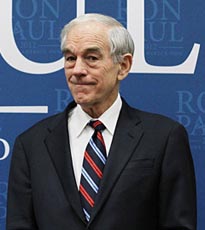
When I Am Gone
by Shel Silverstein
When I am gone what will you do?
Who will write and draw for you?
Someone smarter—someone new?
Someone better—maybe YOU!

I think the destructive, vicious, negative nature of much of the news media makes it harder to govern this country, harder to attract decent people to run for public office. And I am appalled that you would begin a presidential debate on a topic like that. Every person in here knows personal pain. Every person in here has had someone close to them go through personal things. To take an ex-wife, and make it two days before the Primary, a significant question in a Presidential campaign, is as close to despicable as anything I can imagine.Despite his admitting to having a weak imagination, this morning's coverage calls Newt's reply brilliantly calculated. What made it a hit was not so much Newt's words but rather (1) the timing of the exchange, (2) Newt's delivery, (3) King's freezing up, and (4) the audience's enthusiasm.
 Although she spent much of her career on the theater stage, sitcom acting earned Rue McClanahan the most fame, having played Vivian on "Maude" and Blanche on "The Golden Girls". Her autobiography is like a chronology of lovers--she had a panicky need for male companionship likely brought on by her distant father. But hers is not a tale of dysfunction or sadness; instead she admits to only a few recurring mistakes within in a lifetime happiness. She ends with this:
Although she spent much of her career on the theater stage, sitcom acting earned Rue McClanahan the most fame, having played Vivian on "Maude" and Blanche on "The Golden Girls". Her autobiography is like a chronology of lovers--she had a panicky need for male companionship likely brought on by her distant father. But hers is not a tale of dysfunction or sadness; instead she admits to only a few recurring mistakes within in a lifetime happiness. She ends with this:Even as a child I had the strong feeling that life was good. I had a passion for work, an openness to love, and a penchant for joy. In a word, I had hope.
I still have it.The prose is light and bubbly, probably true to McClanahan's personality. The woman herself sounds like her trademark character, Blanche--slept around a lot but had a strong independent streak and beamed positivity, charming those in her company. But, the story goes, she succeeded purely on her acting chops.
 To give us an idea of where journalism is at here in the 21st century, today The New York Times Public Editor, the institution's "readers' representative", asks "Should The Times Be a Truth Vigilante?" Apparently printing every crazy old claim without verifying it has ruffled a few readers' feathers.
To give us an idea of where journalism is at here in the 21st century, today The New York Times Public Editor, the institution's "readers' representative", asks "Should The Times Be a Truth Vigilante?" Apparently printing every crazy old claim without verifying it has ruffled a few readers' feathers.
 The Root has a piece marking the 100th anniversary of the African National Congress titled "The African National Congress Turns 100" that dismisses the decidedly undemocratic and discouraging turn taken by the ANC of late. The piece treats all the high-level corruption and personal misconduct, and the totalitarian secrecy bill attacking the free press as mere growing pains. The author barely put effort into writing the dismissal, as evident in his conclusion:
The Root has a piece marking the 100th anniversary of the African National Congress titled "The African National Congress Turns 100" that dismisses the decidedly undemocratic and discouraging turn taken by the ANC of late. The piece treats all the high-level corruption and personal misconduct, and the totalitarian secrecy bill attacking the free press as mere growing pains. The author barely put effort into writing the dismissal, as evident in his conclusion:And so, back to the celebration of the ANC's 100th anniversary. Whatever issues now confront it, and however they get resolved, on Jan. 8, even critics say, a celebration is indeed appropriate because, as one disaffected ANC member told me, "The ANC and its history belong to us, the people of South Africa."If I felt like tossing off an allegation, I'd bet the author is just a party hack who belongs to the press union in Johannesburg.
 In its first sentence, The New York Times article "Big Study Links Good Teachers to Lasting Gain" shows just how crazy expectations on teachers have become:
In its first sentence, The New York Times article "Big Study Links Good Teachers to Lasting Gain" shows just how crazy expectations on teachers have become:Elementary- and middle-school teachers who help raise their students’ standardized-test scores seem to have a wide-ranging, lasting positive effect on those students’ lives beyond academics, including lower teenage-pregnancy rates and greater college matriculation and adult earnings, according to a new study that tracked 2.5 million students over 20 years.This study focuses on so-called "value-added ratings" which measure teacher impact. The bar is being set impossibly high for public school teachers. The economics professors behind the study cheerfully dumb down the lesson we should tale away from their work:
“The message is to fire people sooner rather than later,” Professor Friedman said.
Professor Chetty acknowledged, “Of course there are going to be mistakes — teachers who get fired who do not deserve to get fired.” But he said that using value-added scores would lead to fewer mistakes, not more.So as long as you make sure all your third graders don't get pregnant until after college when they're working as lawyers and doctors you'll be OK. Charter schools will save the day!
 The New York Times article "Sleeveless and V-Necked, Santorum’s Sweaters Are Turning Heads" notes a recent meme from the Republican campaign: Rick Santorum's sweaters. Here, the candidate's fashion is playfully called the "sensible, traditional choice of grandfathers and college football coaches". I think this as astute an observation as any made about the campaign so far.
The New York Times article "Sleeveless and V-Necked, Santorum’s Sweaters Are Turning Heads" notes a recent meme from the Republican campaign: Rick Santorum's sweaters. Here, the candidate's fashion is playfully called the "sensible, traditional choice of grandfathers and college football coaches". I think this as astute an observation as any made about the campaign so far.Mr. Santorum’s rivals are biased toward sleeves. Mitt Romney likes his crisply pressed oxford shirts, often under a blazer. Ron Paul is partial to suits, albeit ill-fitting ones. And Michele Bachmann, who has said her fashion icons are Jacqueline Kennedy Onassis and Audrey Hepburn, is almost always carefully turned out ...
 Romney messages about the economy, and he appeals to fiscal conservatives. Members in this crowd see themselves primarily as responsible, business-minded people ready for wealth and status. With his style, Romney communicates this economy of success, but opts for business casual over suits so as to appear accessible, his elbows ready to rub.
Romney messages about the economy, and he appeals to fiscal conservatives. Members in this crowd see themselves primarily as responsible, business-minded people ready for wealth and status. With his style, Romney communicates this economy of success, but opts for business casual over suits so as to appear accessible, his elbows ready to rub. "Stone" opens on a domestic scene circa 1963: a young husband sits on the couch. His wallflower wife brings him a beer. After some hand-wringing, she says she's leaving him. He bolts upstairs, grabs their baby daughter and dangles her out the open bedroom window of their two-story home. He threatens to drop the child if the wife abandons him. She concedes, agrees to stay. The scene ends with the baby safely back in her crib, the wife slamming the window shut, killing a buzzing housefly. Silence.
"Stone" opens on a domestic scene circa 1963: a young husband sits on the couch. His wallflower wife brings him a beer. After some hand-wringing, she says she's leaving him. He bolts upstairs, grabs their baby daughter and dangles her out the open bedroom window of their two-story home. He threatens to drop the child if the wife abandons him. She concedes, agrees to stay. The scene ends with the baby safely back in her crib, the wife slamming the window shut, killing a buzzing housefly. Silence. In addition to events in your personal life, this year's Carrier IQ story and revelations about mental illness and its treatment show that everything that seems good is actually bad. And if not actually, then eventually. But that won't change anything.
In addition to events in your personal life, this year's Carrier IQ story and revelations about mental illness and its treatment show that everything that seems good is actually bad. And if not actually, then eventually. But that won't change anything. I read articles like today's Time magazine piece "NKorea Calls Kim Jong Un 'Supreme Leader'" and can't help but think all the analysts, pundits, and other talking heads delight in using the word "Leader" in this context. One the one hand, I guess it respects the practice of the North Koreans, but, on the other, it seems only to emphasize their otherness.
I read articles like today's Time magazine piece "NKorea Calls Kim Jong Un 'Supreme Leader'" and can't help but think all the analysts, pundits, and other talking heads delight in using the word "Leader" in this context. One the one hand, I guess it respects the practice of the North Koreans, but, on the other, it seems only to emphasize their otherness.
 The New York Times interest piece "Navigating Love and Autism" (1) establishes romantic relationships as a normalizing force and (2) documents an effort to normalize autistic people. The story begins with college-aged Kirsten dating a young man who offers her some much needed coaching in the social graces. She chafes under his direction and is soon drawn to another young man, Jack, who shows no interest in such social conventions. Comforted by the lack of expectations each felt from the other, Jack and Kirsten strike up a relationship. Soon, though, she realizes she needs more affection and understanding than her new beau can give. He has Asperger syndrome, and, turns out, she sort of does, too. They push on together, usually either arguing or just keeping one another company. She starts learning to cope and eventually he lets her get a kitten.
The New York Times interest piece "Navigating Love and Autism" (1) establishes romantic relationships as a normalizing force and (2) documents an effort to normalize autistic people. The story begins with college-aged Kirsten dating a young man who offers her some much needed coaching in the social graces. She chafes under his direction and is soon drawn to another young man, Jack, who shows no interest in such social conventions. Comforted by the lack of expectations each felt from the other, Jack and Kirsten strike up a relationship. Soon, though, she realizes she needs more affection and understanding than her new beau can give. He has Asperger syndrome, and, turns out, she sort of does, too. They push on together, usually either arguing or just keeping one another company. She starts learning to cope and eventually he lets her get a kitten.The months that followed Jack and Kirsten’s first night together show how daunting it can be for the mindblind to achieve the kind of mutual understanding that so often eludes even nonautistic couples.The story continues: After establishing a presence on an advice web site for Autistic people, Jack and Kirsten are somehow invited to speak publicly about relationships. Kirsten is quoted as saying “Parents always ask, ‘Who would like to marry my kid? They’re so weird.' But, like, another weird person, that’s who." The people who approached them for advice feel anxiety about their own relationship prospects.
